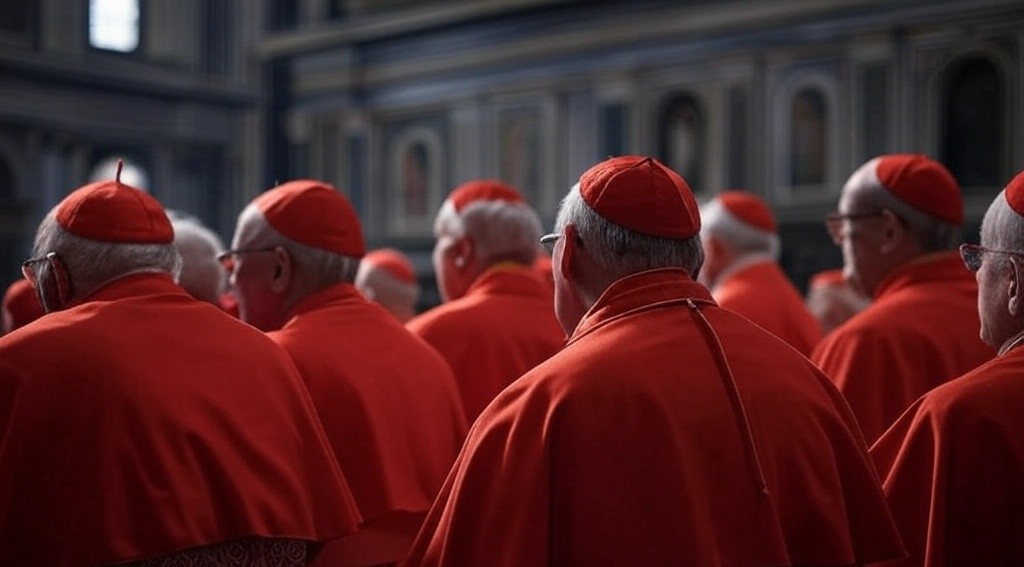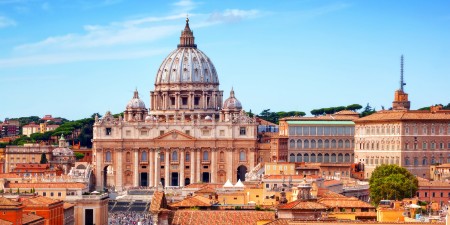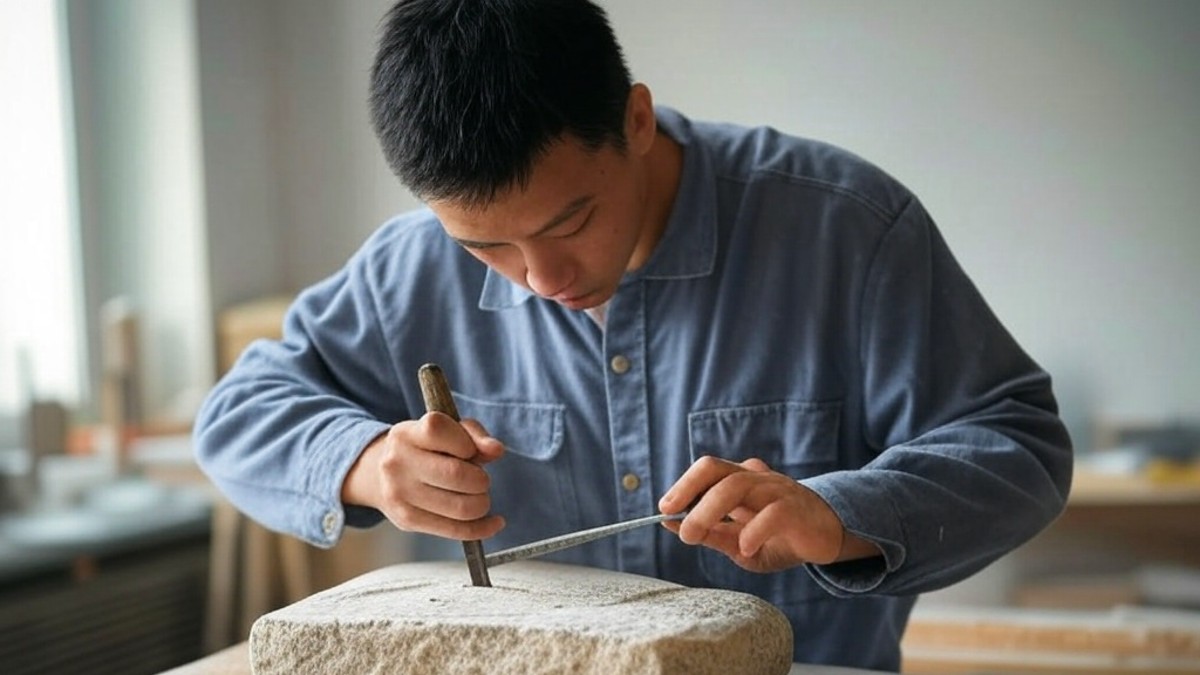 Dear readers, Catholic Online was de-platformed by Shopify for our pro-life beliefs. They shut down our Catholic Online, Catholic Online School, Prayer Candles, and Catholic Online Learning Resources essential faith tools serving over 1.4 million students and millions of families worldwide. Our founders, now in their 70's, just gave their entire life savings to protect this mission. But fewer than 2% of readers donate. If everyone gave just $5, the cost of a coffee, we could rebuild stronger and keep Catholic education free for all. Stand with us in faith. Thank you. Help Now >
Dear readers, Catholic Online was de-platformed by Shopify for our pro-life beliefs. They shut down our Catholic Online, Catholic Online School, Prayer Candles, and Catholic Online Learning Resources essential faith tools serving over 1.4 million students and millions of families worldwide. Our founders, now in their 70's, just gave their entire life savings to protect this mission. But fewer than 2% of readers donate. If everyone gave just $5, the cost of a coffee, we could rebuild stronger and keep Catholic education free for all. Stand with us in faith. Thank you. Help Now >
Vocation FAQ's
FREE Catholic Classes
- What is ordination?
- When does the ordination actually take place?
- Who can ordain priests?
- What is the meaning of the laying on of hands?
- Why does the ordinand lie prostrate during the ordination?
- What is the meaning of the newly ordained priest receiving the stole and chasuble?
- What does the anointing of the hands signify?
- Why does the ordaining bishop hand the ordinand a chalice and paten?
- How does one prepare for ordination to the priesthood?
- Do priests take vows?
- What is a Missionary?
What is ordination?
Ordination is the sacramental ceremony in which a man becomes a deacon, priest, or bishop and enabled to minister in Christ's name and that of the Church. There are three ordinations in the Sacrament of Holy Orders: deaconate; priesthood; and Episcopal. The ordination ceremony includes various rituals, rich in meaning and history, e.g., the prostration, laying on of hands, anointing of hands, giving of the chalice and paten, sign of peace.
When does the ordination actually take place?
The essential rite of the sacrament, i.e., when it takes place, is the laying on of hands and prayer of consecration. This is an ancient tradition in the Church, mentioned in the Bible.
Who can ordain priests?
Only a bishop can ordain a priest because he shares in the ministry of Jesus passed down through the apostles.
What is the meaning of the laying on of hands?
By this ritual the ordaining bishop and the other priests invoke the Holy Spirit to come down upon the one to be ordained, giving him a sacred character and setting him apart for the designated ministry.
Why does the ordinand lie prostrate during the ordination?
It symbolizes his unworthiness for the office to be assumed and his dependence upon God and the prayers of the Christian community.
What is the meaning of the newly ordained priest receiving the stole and chasuble?
These are vestments which pertain to his office and have symbolic meaning. The stole symbolizes the authority and responsibility to serve in imitation of Christ. It reflects the line from Scripture: "For my yoke is easy and my burden light" (Mt 11:30). The chasuble is the principal garment of the priest celebrating the Eucharist and is the outermost vestment.
What does the anointing of the hands signify?
Anointing with oil stems from the Old Testament and indicates that someone or something is being set apart for a sacred task or duty. The anointing of the hands signifies that the hands of the newly ordained priest are being prepared for the sacred duties and vessels which will be part of the priestly ministry, for example, offering the bread and the wine, anointing the sick and blessing people. The bishop says as he anoints the hands: "The Father anointed our Lord Jesus Christ through the power of the Holy Spirit. May Jesus preserve you to sanctify the Christian people and to offer sacrifice to God."
Why does the ordaining bishop hand the ordinand a chalice and paten?
The Eucharist is at the heart of the priesthood and this ritual highlights the importance of celebrating the Eucharist in the life of the priest and its meaning, as seen in the words which are spoken by the bishop: "Accept from the holy people of God the gifts to be offered to him. Know what you are doing, and imitate the mystery you celebrate: model your life on the mystery of the Lord's cross."
How does one prepare for ordination to the priesthood?
A man has to engage in a challenging program of priestly formation which lasts from five to thirteen years, depending upon his background and the seminary he attends. There are three levels of seminary: high school; college or pre-theology; and theology.
Seminaries address four types of formation: human; spiritual; academic (intellectual); and pastoral. In addition to the academic course work, seminarians participate in a full schedule of spiritual activities, e.g., daily Mass, Liturgy of the Hours (Morning Prayer, Evening Prayer), and spiritual direction and retreats. At each level of seminary training, the seminarian prepares for future pastoral ministry in various settings, such as schools, religious education programs, hospitals and parishes. All of the formation takes into consideration the human person; human growth and development is fostered by community living, workshops and other programs. The formation of future priests includes practical learning, too, for example, preaching, saying Mass, and pastoral counseling.
Do priests take vows?
Priests who belong to a religious order (e.g., Benedictine, Dominicans, Franciscans, etc.) take the vows of poverty, chastity, and obedience. Diocesan priests make two promises, celibacy and obedience; these promises are part of the ordination ceremony. It is also expected that diocesan priests will lead a life of simplicity consonant with the people they serve.
For recent statistics on seminaries and seminary students, please call the Secretariat for Vocations and Priestly Formation at the United States Conference of Catholic Bishops.
What is a Missionary?
A missionary is called to proclaim Christ through helping to create new Christian communities or assisting those that are just beginning in many parts of the world. The missionary also engages in the interreligious and intercultural dialogue of the Church worldwide. Finally, the missionary lives in solidarity with the poor through the work of justice, peace and the integrity of creation. Missionaries collaborate with the populations they serve to work for the common good in communion and solidarity with the local Church and in fidelity to the universal Church.
Provided by: Father Carl Chudy, SX , Provincial, United States Province, Xaverian Missionaries.
Vocations & Priestly Formation | © USCCB. All rights reserved.
More Vocations

Latest Vocation News
How to Become Pope: Qualifications and the Path to the Papacy

The election of a pope is a process steeped in history, tradition, and canon law. While the vast majority of popes in recent centuries have ... continue reading
Pope Francis Names Two Secretaries-General Under Sister Raffaella Petrini

In a historic move that further elevates the role of women in Vatican leadership, Pope Francis has appointed two secretaries-general to ... continue reading
Reviving Sacred Traditions: The Vatican's School of Arts and Crafts

In a unique effort to preserve the sacred arts, St. Peter's Basilica has launched a School of Arts and Crafts to train the next generation ... continue reading
Catholic Relief Services Faces Massive Cuts: Why Your Support Should Go Elsewhere

Catholic Relief Services (CRS), one of the largest international Catholic humanitarian organizations, is facing devastating funding cuts as ... continue reading
The Nun Who Witnessed the Life and Legacy of Martin Luther King Jr

In the struggle for civil rights, the courage of Sister Mary Antona Ebo stands as a shining example of how faith can inspire action against ... continue reading
Join the Movement
When you sign up below, you don't just join an email list - you're joining an entire movement for Free world class Catholic education.
- Easter / Lent
- 5 Lenten Prayers
- Ash Wednesday
- 7 Morning Prayers
- Mysteries of the Rosary
- Litany of the Bl. Virgin Mary
- Popular Saints
- Popular Prayers
- Female Saints
- Saint Feast Days by Month
- Stations of the Cross
- St. Francis of Assisi
- St. Michael the Archangel
- The Apostles' Creed
- Unfailing Prayer to St. Anthony
- Pray the Rosary
![]()
Copyright 2026 Catholic Online. All materials contained on this site, whether written, audible or visual are the exclusive property of Catholic Online and are protected under U.S. and International copyright laws, © Copyright 2026 Catholic Online. Any unauthorized use, without prior written consent of Catholic Online is strictly forbidden and prohibited.
Catholic Online is a Project of Your Catholic Voice Foundation, a Not-for-Profit Corporation. Your Catholic Voice Foundation has been granted a recognition of tax exemption under Section 501(c)(3) of the Internal Revenue Code. Federal Tax Identification Number: 81-0596847. Your gift is tax-deductible as allowed by law.









